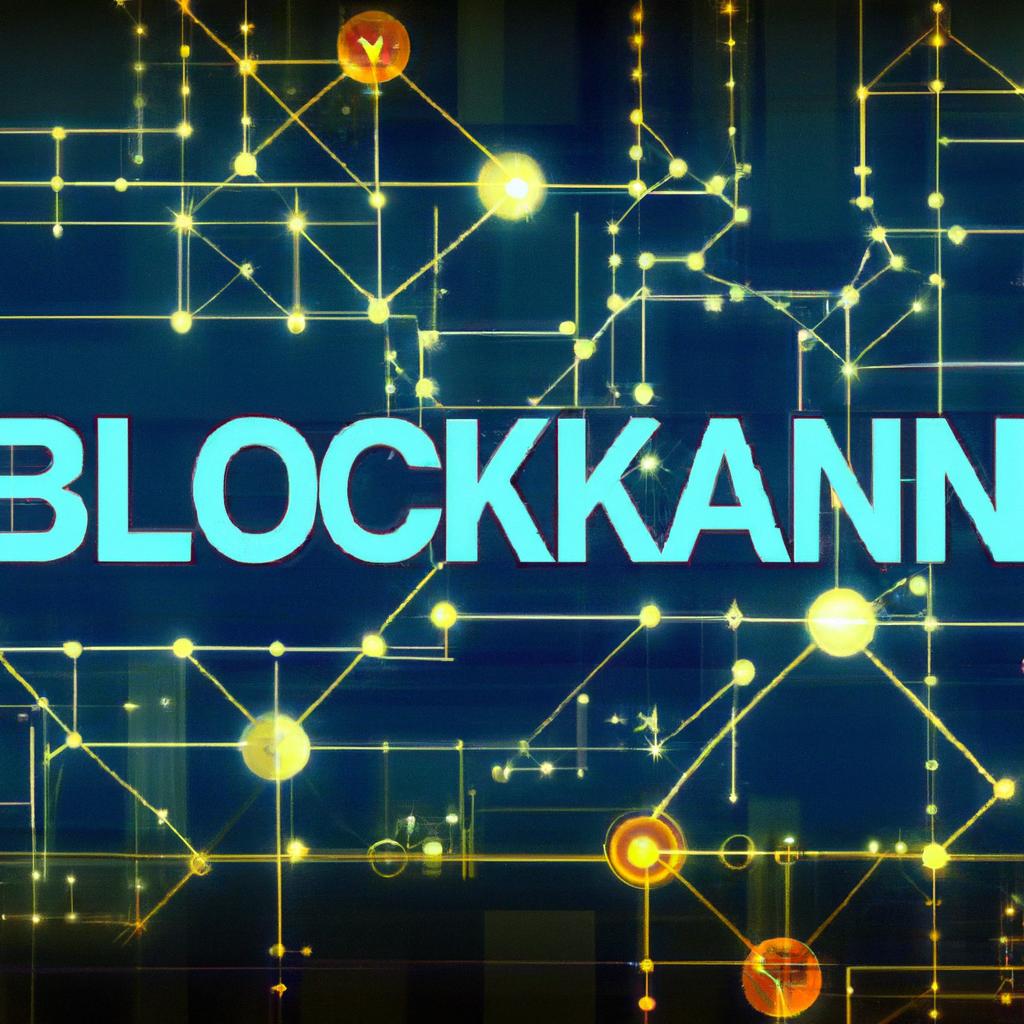
Blockchain in Healthcare: Potential Applications
In the ever-evolving landscape of healthcare, the integration of blockchain technology has emerged as a promising solution to address a multitude of challenges. From enhancing data security to streamlining patient care, the potential applications of blockchain in healthcare are vast and transformative. Join us as we delve into the innovative world of blockchain and explore the ways in which this emerging technology is revolutionizing the way we approach healthcare delivery.
Table of Contents
- Exploring the Impact of Blockchain Technology in Healthcare
- Enhancing Data Security and Privacy with Blockchain
- Streamlining Healthcare Operations Through Blockchain Solutions
- Implementing Blockchain for Improved Patient Care Delivery
- Q&A
- Key Takeaways
Exploring the Impact of Blockchain Technology in Healthcare
Blockchain technology has the potential to revolutionize the healthcare industry by improving data security, interoperability, and transparency. One key application of blockchain in healthcare is the secure storage and sharing of patient health records. By utilizing a decentralized ledger system, patient data can be securely stored and accessed by authorized healthcare providers, reducing the risk of data breaches and ensuring patient privacy.
Additionally, blockchain technology can streamline healthcare processes such as billing and claims management by automating transactions and reducing administrative costs. Another exciting application of blockchain in healthcare is in clinical trials management, where smart contracts can be used to facilitate transparent and efficient data sharing among researchers and participants. The possibilities for blockchain technology in healthcare are vast, and as the technology continues to evolve, we can expect to see even more innovative applications in the future.
Enhancing Data Security and Privacy with Blockchain
One potential application of utilizing blockchain technology in the healthcare industry is in securely storing and managing patient health records. By leveraging blockchain’s decentralized and immutable nature, sensitive medical data can be securely stored and accessed only by authorized individuals. This can help in enhancing data security and privacy, reducing the risk of data breaches and unauthorized access.
Moreover, blockchain can also be used for tracking the authenticity of pharmaceutical products in the supply chain. This can help in combating counterfeit drugs and ensuring that patients receive genuine medications. By implementing blockchain technology, healthcare organizations can ensure transparency and traceability in the pharmaceutical supply chain, ultimately leading to improved patient safety and trust.
Streamlining Healthcare Operations Through Blockchain Solutions
Blockchain technology has the potential to revolutionize the healthcare industry by improving data security, interoperability, and efficiency. One key application of blockchain in healthcare is electronic health records (EHR). By utilizing blockchain, patient data can be securely stored and shared among healthcare providers, reducing the risk of data breaches and ensuring patients’ information remains confidential. Additionally, blockchain can enable easier access to medical records for both patients and providers, leading to more accurate and timely diagnoses.
Another promising application of blockchain in healthcare is supply chain management. By using blockchain technology, the pharmaceutical industry can track the journey of drugs from manufacturer to patient, ensuring the authenticity and quality of medications. This can help prevent the distribution of counterfeit drugs, reduce drug shortages, and improve patient safety. Overall, blockchain solutions have the potential to streamline healthcare operations, enhance data security, and improve patient outcomes.
Implementing Blockchain for Improved Patient Care Delivery
Blockchain technology has the potential to revolutionize the healthcare industry by enhancing patient care delivery. One of the key advantages of implementing blockchain in healthcare is its ability to securely store and share sensitive patient data. By utilizing decentralized ledger technology, healthcare organizations can ensure the integrity and confidentiality of patient information, thereby improving overall care quality and patient outcomes.
Furthermore, blockchain can streamline administrative processes within healthcare systems, reducing costs and improving efficiency. With the use of smart contracts, healthcare providers can automate tasks such as insurance claims processing and patient billing, allowing for faster transactions and reduced administrative burden. By leveraging blockchain for improved patient care delivery, healthcare organizations can enhance data security, interoperability, and operational efficiency, ultimately leading to better healthcare outcomes for patients.
Q&A
Q: What is blockchain and how does it relate to healthcare?
A: Blockchain is a decentralized, secure, and transparent digital ledger technology that has the potential to revolutionize the way sensitive data is stored and shared in healthcare.
Q: What are some potential applications of blockchain in healthcare?
A: Some potential applications of blockchain in healthcare include securely storing patient records, tracking pharmaceutical supply chains, enabling secure and private telemedicine consultations, and facilitating medical research data sharing.
Q: How can blockchain improve data security in healthcare?
A: By encrypting and decentralizing patient data across a network of computers, blockchain can prevent unauthorized access, tampering, and fraud, thus enhancing data security and privacy in healthcare.
Q: What challenges need to be addressed for the widespread adoption of blockchain in healthcare?
A: Challenges such as regulatory compliance, interoperability between different blockchain platforms, scalability issues, and concerns about data privacy and confidentiality need to be addressed for the widespread adoption of blockchain in healthcare.
Q: How can healthcare organizations start incorporating blockchain into their operations?
A: Healthcare organizations can start incorporating blockchain into their operations by conducting pilot projects, collaborating with blockchain technology providers, training staff on blockchain fundamentals, and staying updated on the latest trends and developments in blockchain technology.
Key Takeaways
As we have explored the potential applications of blockchain technology in healthcare, it has become evident that this innovative tool has the power to revolutionize the way data is managed, exchanged, and secured in the healthcare industry. From streamlining medical record management to improving drug traceability and enhancing patient privacy, blockchain holds immense promise for transforming the way healthcare is delivered and accessed. As we continue to witness the evolution of this technology and its integration into the healthcare ecosystem, one thing is clear – the future of healthcare is brighter with blockchain. Stay tuned for more updates on this exciting frontier of innovation.


